 Waffles: Sweet, Savory, Simple
6395237
Waffles: Sweet, Savory, Simple
6395237
|
Dawn Yanagihara
|
9781452138411 |
2012 |
Contains images
|
|
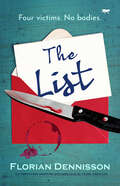 The List
6395236
The List
6395236
|
Florian Dennisson
|
9781504075763 |
2022 |
Contains images
|
|
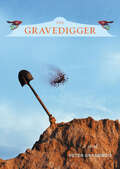 The Gravedigger: A Novel
6395235
The Gravedigger: A Novel
6395235
|
Peter Grandbois
|
9780811870702 |
2006 |
Contains images
|
|
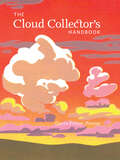 The Cloud Collector's Handbook
6395234
The Cloud Collector's Handbook
6395234
|
Gavin Pretor-Pinney
|
9781452105185 |
2011 |
Contains images
|
|
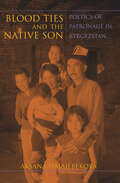 Blood Ties and the Native Son: Poetics of Patronage in Kyrgyzstan (New Anthropologies of Europe)
6395233
Blood Ties and the Native Son: Poetics of Patronage in Kyrgyzstan (New Anthropologies of Europe)
6395233
|
Aksana Ismailbekova
|
9780253025777 |
2017 |
Contains images
|
|
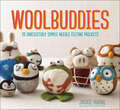 Woolbuddies: 20 Irresistibly Simple Needle Felting Projects
6395232
Woolbuddies: 20 Irresistibly Simple Needle Felting Projects
6395232
|
Jackie Huang
|
9781452129938 |
2013 |
Contains images
|
|
 Honey: From Flower to Table
6395231
Honey: From Flower to Table
6395231
|
Stephanie Rosenbaum
|
9781452134512 |
2002 |
Contains images
|
|
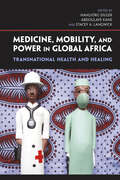 Medicine, Mobility, and Power in Global Africa: Transnational Health and Healing
6395230
Medicine, Mobility, and Power in Global Africa: Transnational Health and Healing
6395230
|
Hansjörg Dilger
Abdoulaye Kane
Stacey A. Langwick
|
9780253005328 |
2012 |
Contains images
|
|
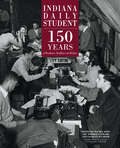 Indiana Daily Student: 150 Years of Headlines, Deadlines and Bylines (Well House Books)
6395229
Indiana Daily Student: 150 Years of Headlines, Deadlines and Bylines (Well House Books)
6395229
|
Rachel Kipp, Amy Wimmer Schwarb and Charles Scudder
|
9780253046130 |
2019 |
Contains images
|
|
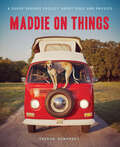 Maddie on Things: A Super Serious Project About Dogs and Physics
6395228
Maddie on Things: A Super Serious Project About Dogs and Physics
6395228
|
Theron Humphrey
|
9781452127262 |
2013 |
Contains images
|
|
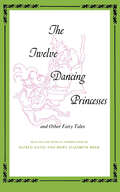 The Twelve Dancing Princesses: And Other Fairy Tales
6395227
The Twelve Dancing Princesses: And Other Fairy Tales
6395227
|
Alfred David and Mary Elizabeth Meek
|
9780253013248 |
1964 |
Contains images
|
|
 Party Appetizers: Small Bites, Big Flavors
6395226
Party Appetizers: Small Bites, Big Flavors
6395226
|
Tori Ritchie
|
9781452125169 |
2004 |
Contains images
|
|
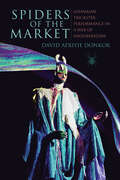 Spiders of the Market: Ghanaian Trickster Performance in a Web of Neoliberalism (African Expressive Cultures)
6395225
Spiders of the Market: Ghanaian Trickster Performance in a Web of Neoliberalism (African Expressive Cultures)
6395225
|
David Afriyie Donkor
|
9780253021540 |
2016 |
Contains images
|
|
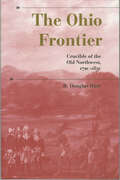 The Ohio Frontier: Crucible of the Old Northwest, 1720–1830 (A\history Of The Trans-appalachian Frontier Ser.)
6395224
The Ohio Frontier: Crucible of the Old Northwest, 1720–1830 (A\history Of The Trans-appalachian Frontier Ser.)
6395224
|
R. Douglas Hurt
|
9780253027672 |
1996 |
Contains images
|
|
 Quick & Easy Korean Cooking: More Than 70 Everyday Recipes (Quick & Easy)
6395223
Quick & Easy Korean Cooking: More Than 70 Everyday Recipes (Quick & Easy)
6395223
|
Cecilia Hae-Jin Lee
|
9781452126296 |
2009 |
Contains images
|
|
 Anna Getty's Easy Green Organic
6395222
Anna Getty's Easy Green Organic
6395222
|
Anna Getty
|
9781452100050 |
2010 |
Contains images
|
|
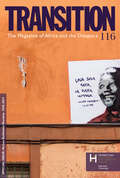 Transition 116: Nelson Rolihlahla Mandela 1918–2013 (Transition #116)
6395221
Transition 116: Nelson Rolihlahla Mandela 1918–2013 (Transition #116)
6395221
|
IU Press Journals
|
9780253018540 |
2014 |
Contains images
|
|
 Indian Economy - 1 and 2 First Semester FYBA New NEP Syllabus - SPPU
6388918
Indian Economy - 1 and 2 First Semester FYBA New NEP Syllabus - SPPU
6388918
|
Dr Sunil Ugale
Dr Amol Gaikwad
Dr Manisha Aher
|
9789361094040 |
2024 |
Contains images
Contains image descriptions
|
|
 Glimpses of Modern India-1 First Semester FYBA New NEP Syllabus - SPPU
6388903
Glimpses of Modern India-1 First Semester FYBA New NEP Syllabus - SPPU
6388903
|
Miss Rupali Kulkarni
|
9789361091872 |
2024 |
Contains images
Contains image descriptions
|
|
 MTS PYTHON-1 (SEC-101) First Semester FYBA, B.SC New NEP Syllabus - SPPU
6388902
MTS PYTHON-1 (SEC-101) First Semester FYBA, B.SC New NEP Syllabus - SPPU
6388902
|
Hrishikesh V. Khaladkar
Dr Nanasaheb M. Phatangare
Dr Anil S. Khairnar
|
9789361090011 |
2024 |
Contains images
Contains image descriptions
|
|
 Foundations of Psychology First Semester FYBA New NEP Syllabus - SPPU
6388901
Foundations of Psychology First Semester FYBA New NEP Syllabus - SPPU
6388901
|
Dr Anuradha Prashant Harkare
|
9789361097539 |
2024 |
Contains images
Contains image descriptions
|
|
 Basics of Computer Hardware (OE-101-ELS) First Semester FYBA, B.COM New NEP Syllabus - SPPU
6388900
Basics of Computer Hardware (OE-101-ELS) First Semester FYBA, B.COM New NEP Syllabus - SPPU
6388900
|
Prof. Dr. P. B. Buchade
Prof. Dr. M. L. Dongare
S. R. Chaudhari
Ms Shital Kanasakar
|
9789361090011 |
2024 |
Contains images
Contains image descriptions
|
|
 Agriculture Geography First Semester FYBA, B.COM, B.SC New NEP Syllabus - SPPU
6388899
Agriculture Geography First Semester FYBA, B.COM, B.SC New NEP Syllabus - SPPU
6388899
|
Dr Jyotiram C. More
Prof. Harishchandra S. Timbole
Dr Ganesh Madhukar Dhawale
|
9789361097515 |
2024 |
Contains images
Contains image descriptions
|
|
 Introduction to Sociology First Semester FYBA New NEP Syllabus - SPPU
6388898
Introduction to Sociology First Semester FYBA New NEP Syllabus - SPPU
6388898
|
Dr Jyoti Suhas Gagangras
Dr Sudhir Ashruba Yevle
|
9789361093197 |
2024 |
Contains images
Contains image descriptions
|
|
 Indian Constitution First Semester FYBA New NEP Syllabus - SPPU
6388897
Indian Constitution First Semester FYBA New NEP Syllabus - SPPU
6388897
|
Dr Pramod R. Tambe
|
9789361097935 |
2024 |
Contains images
Contains image descriptions
|
|